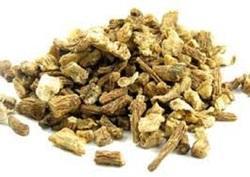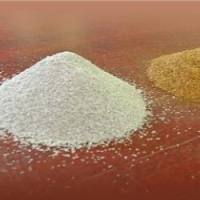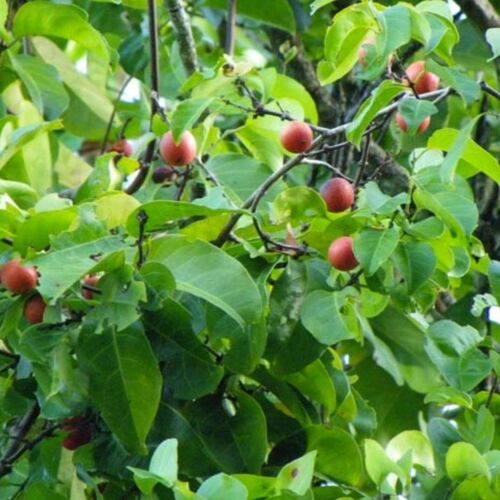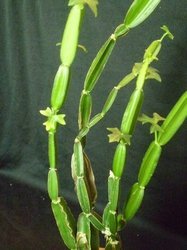- Home Page
- Company Profile
-
Our Products
- Pure Herbal Extracts
- Apamarga Extract
- Gojiberry Extract
- Dandelion Extracts
- Black Tea Extract
- Shilajit Extract
- Manjishtha Extracts
- Cissus Quadrangularis Extract
- Chitrakmool Extract
- Amaltas Extract
- Artemisia Extract
- Bromelain - 2400 GDU
- Olive Leaf Extract
- Muira Puama Extracts
- Bhringraj Extract
- Birch Leaf Extract
- L Glutathione Reduced
- Piperine Extract
- Devil's Claw Extract
- Celery Seed Extract
- Asafoetida Extract
- Apple Powder
- Ajwain Seed Extract
- Natural Herbal Extracts
- Papaya Leaf Extract
- Pumpkin Seed Extract
- Natural Herbal Organic Extracts
- Maitake Mushroom Extract
- Ganoderma Extract
- Schisandra Berry Extract
- Moringa Leaf Extract
- Fenugreek Extract
- Acacia Catechu Khadir Chhal Extract
- Arjuna Extract
- Tulsi Ark
- Neem Extract
- Kacip Fatimah Extract
- Boswellia Serrata Extract
- Astragalus Extract
- Passion Flower Extract
- Kelp Extract
- Ginseng Extract
- Nigella Sativa Extract
- Curcumin Extract
- Pansy Extracts
- Sea Buckthorn Extracts Powder
- Rosemary Extract
- Mucuna Pruriens Extract
- Ashoka Extract
- Gokhru Extract
- Rose Hip Extract
- Kudzu Extract
- Natural Phytosterol 95%
- Organic Herbal Extracts
- Papain Enzyme
- Propolis Extract
- Aguaje Fruit Extract
- Elder Berry Extract
- Hoodia Extract
- Wheat Grass Extract
- Black Current Extract
- Valerian Root Extracts Powder
- Sesbania Grandiflora Extract
- Broccoli Extract
- Mangolina Bark Extracts
- Pomegranate Extract
- Acai Berry Extract
- Apple Extract
- Blueberry Extract
- Black Cohosh Extract
- Chamomile Extract
- Guava Leaf Extracts Powder
- Burdock Root Extract
- Mulberry Leaf Extract
- Raspberry Extract
- Mitake Mushroom Extract
- Grape Seed Extract
- Kiwi Extract
- Basella Alba Extracts
- Hawthorn Extract
- Thyme Extract
- Hibiscus Powder
- Morinda Citrifolia Extract
- Wheatgrass Extract
- Bitter Melon Extract
- Hops Flower Extract
- Mangosteen Extract
- Parsley Extract Powder
- Jamun Seed Extracts
- Guggal Extract
- Acerola Cherry Extract
- Garlic Extract
- Hedera Helix Extract
- Senna Extract
- Shiitake Mushroom Extracts
- Ginger Extract
- Vitex Agnus Extract
- Nettle Leaf Extract
- Pygeum Bark Extract
- Guduchi (Giloy) Extract
- Lotus Extract
- Amla Extract
- Soya Isoflavone Extract
- Lucuma Extract
- Bamboo Extract
- Herbal Powder
- Shatavari Extract
- Gokharu Extract
- Berberine HCL
- Stem Cell Extract
- Herbal Raw Material
- Graviola Extract
- Apricot Extract
- L Arjinin Powder
- Brahmi Extract
- Cranberry Extract
- Astaxanthin Powder
- Herbal Extract
- Stevia Leaf Extract
- Apmarga Extracts
- Dandelion Extract
- Anthocyanin Powder
- Nutraceuticals Raw Materials
- Beta Sitosterol Powder
- Alfa Alfa Extract
- Cinnamon Extracts
- Spinach Extract
- Irvingia Gabonensis Extract
- Siberian Ginseng Extract
- American Ginseng
- Pure Thyme Extract
- Enriched Yeast
- Bitter Buckwheat Extract
- Dong Quai
- Red Yeast Rice Extract
- Avena Sativa Extract
- Colchicine USP
- Aloe Vera Extracts
- Coleus Root Extracts
- Sage Leaf Extract
- White Willow Bark
- DHA Powder
- Coleus Extract
- Catuba Bark Extract
- Guggul Extracts
- Spirulina Powder
- Chlorella Extract
- Omega 3 Powder
- White Willow Bark Extract
- American Ginseng Extract
- Chlorella Extracts
- Centrallia Asciatica
- Gymnema Sylvestris
- Cissus Quadrangularis
- Saga Leaf
- Ginkgo Biloba
- Siberian Ginseng
- DHA Veg Powder
- Ginkgo Biloba Extract
- Gymnema Sylvestre Extracts
- Quercetin Powder
- Juniperus Communis Extract
- Annona Squamosa Extracts (Shareefa)
- Green Apple Extract
- Tephrosia Purpurea Extract
- Soy Isoflavone
- Cocoa Husk Extract
- Terminalia Belerica Extract
- Chirata Extract (Swertia Chirayaita)
- Arrow root Extract (Maranta arundinacea)
- Punica Granatum Extract (Dadima/ Dadaka/ Anar)
- Pterocarpus marsupium Extract (Asana / Vijaysar / Beejaka)
- Butea monosperma Taub / B. frondosa(Palash / Dhark)
- (Vasaka/Adhatoda Zeylanica) Vasaka Extract
- Amaranthus Spinosus Extract (Tanduliya / Chaulai / Kateli)
- Cajanus Cajan Extract (Adaki / Arahar / Tuvar ki daal)
- L Theanine Powder
- Acacia Catechu Extract
- Cinnamon Powder
- Basella alba Leaf Extract
- Cucumis Melo Extract
- Organic-Natural (3.6%) Iron From Curry Leaf
- Mixed Tocopherol 30% Powder from Soya
- Citrus Bioflavonidoid Powder
- Salacia Reticulata Root Extract
- Mangosteen Extract Powder
- Natural (50%) Vitamin C From Amla Extract
- Organic-Natural (0.5%) Biotin From Sesbania Grandiflora
- Organic-Natural (5%) Folic acid From Lemon Peel Extract
- Organic-Natural Thiamine From Mung bean (Vigna radiata)
- Organic-Natural (2%) Beta Carotene From Carrot
- Organic-Natural (4%) Beta Carotene From Annatto Extract
- Organic-Natural (3.6%) Niacin From Holy Basil (Tulsi) Extract
- Citrus latifolia Extract
- Organic-Natural (4%) Magnesium From Lantana camara (Sage Leaf)
- Perna canaliculus (Green lipped mussel / Mussel Oil)
- Omega 6 Fatty Acid Powder
- Organic Millet Extract
- Hesperidin Powder
- silymarin extract
- Phycocyanin From Spirulina Plantesis
- Methyl Sulfonyl Methane (MSM) Powder
- Sphaeranthus Indicus Extract
- Nelumbo Nucifera Lotus Leaf Extract
- Mimosa Pudica Extract
- Medicinal Herbal Extract
- Echinacea Extract
- Green Coffee Extracts
- Noni Extract
- Wild Yam Extract
- Mulethi Extract
- Tongkat Ali Extract
- Garcinia Extract
- Harad Extract
- Banana Leaf Extract
- Barley Grass Extract
- Artimisia Extract
- Nettle Extract
- Konjac Extract Powder
- Resveratrol Powder
- White Kidney Bean Extracts
- Horse Chest Nut Extract
- Green Tea Extract
- Resveratrol Powder
- Green Coffee Extract
- Wort Plant Extract
- Yarba Mate Extract
- Yohambe Extract
- Essential Oils
- Lemon Oil
- Balsam peru
- Tea TREE oIL
- Palmarosa Oil
- LemonGrass Oil
- Rose Essential Oil
- Ylang Ylang Oil
- Pure Frankincense Oil
- Citronella Essential Oil
- Lavender Essential Oil
- Jasmine Essential Oil
- Peppermint Oil
- Wheat Germ Oil
- Walnut Oils
- Macadamia Nut Oil
- Olive Oil
- Grape Seed Oil
- Pure Hazelnut Oil
- Carrot oil
- Argan Oil
- Apricot Oil
- Natural Almond Oil
- Jojoba Oil
- Basil Oil
- Lemongrass Essential Oil
- Essential Oils
- Bitter Orange
- Sandalwood Oil
- Rosemary Oil
- Aloe Vera Essential Oil
- Nagarmotha Oil
- Frangipani Oil
- Fenugreek CO2 Oil
- Geranium Oil
- Treemoss Absolute
- Balsam Copaiba
- Bay Oil
- Spearmint Oil
- Lavandin Oil
- Mace Absolute
- Mandarine Oil Yellow
- Buchu Leaf Oil
- Turmeric Oleoresin
- Ginger Oleoresin
- Frankincense OIl
- Balsam peru
- Ambrette Seed Absolute Natural
- Medium Chain Triglycerides Oil CCTG MCT Oil
- Ratio Extract
- Spray Dried Powders
- Food Ingredients
- Natural Food Colours
- Sea Buckthorn Products
- Active Pharmaceutical Ingredient
- Pure Herbal Extracts
- Contact Us
Punica Granatum Extract (Dadima/ Dadaka/ Anar)
Price 1000 INR/ Kilograms
MOQ : 1 Kilograms
Punica Granatum Extract (Dadima/ Dadaka/ Anar) Specification
- Extract Type
- Solvent Extraction
- Variety
- Other Herbal Extract
- Part
- Flower
- Form
- Powder
- Purity(%)
- 98
- Smell
- Mild Smell
- Shelf Life
- 24 Months
About Punica Granatum Extract (Dadima/ Dadaka/ Anar)
- The pomegranate (Punica granatum) is a fruit-bearing deciduous shrub in the family Lythraceae, subfamily Punicoideae, that grows between 5 and 10 m (16 and 33 ft) tall.
- The pomegranate was originally described throughout the Mediterranean region. It was introduced into Spanish America in the late 16th century and into California by Spanish settlers in 1769.
- A pomegranate is a sweet, tart fruit with thick, red skin. While the skin is not edible, it holds hundreds of juicy seeds that you can eat plain or sprinkle on salads, oatmeal, hummus, and other dishes. Bottled pomegranate juice is also an easy way to enjoy some of the health benefits of this delicious fruit.
- USES
- Pomegranate can be used in the prevention and treatment of several types of cancer, cardiovascular disease, osteoarthritis, rheumatoid arthritis, and other diseases. In addition, it improves wound healing and is beneficial to the reproductive system.
- Packed with nutrients.
- Rich in antioxidants.
- May help keep inflammation at bay.
- May have anticancer properties.
- May offer heart health benefits.
- Support urinary health.
- May have antimicrobial properties.
- May improve exercise endurance.
Premium Herbal Flower Extract
This extract is derived from the flowers of Punica Granatum, commonly known as pomegranate, using advanced solvent extraction methods. Its 98% purity ensures a highly concentrated and effective product, making it a sought-after ingredient for wellness and cosmetic industries.
Assured Quality and Longevity
With a shelf life of 24 months and a mild, characteristic aroma, this powdered extract is packaged to preserve its natural properties and potency. It is rigorously tested for purity, offering peace of mind for manufacturers and consumers alike looking for dependable herbal extracts.
FAQ's of Punica Granatum Extract (Dadima/ Dadaka/ Anar):
Q: How is Punica Granatum Extract (Anar Flower) processed?
A: The extract is obtained from the flower part of the pomegranate plant through solvent extraction. This careful process helps concentrate its active constituents while maintaining high purity and efficacy in powdered form.Q: What benefits does this extract offer?
A: Punica Granatum Extract is valued for its antioxidant properties and potential to support skin health and overall wellness. It is often included in herbal remedies and skincare formulations for its rejuvenating attributes.Q: When should Punica Granatum Extract be used?
A: This extract is best utilized as an ingredient in product formulations such as capsules, powders, ointments, or cosmetic products. Its mild smell and stable shelf life make it suitable for long-term use in manufacturing and personal care.Q: Where is this Punica Granatum Extract manufactured?
A: The extract is manufactured and supplied by a reputable producer in India, ensuring adherence to rigorous quality standards and consistent product quality.Q: What is the purity and shelf life of this extract?
A: This flower extract boasts a 98% purity and, when stored properly, maintains its quality and effectiveness for up to 24 months from the date of manufacture.Q: How can the extract be used in formulations?
A: Due to its powdered form and high purity, the extract can be easily blended into herbal preparations, dietary supplements, and cosmetic products for enhanced efficacy and natural wellness benefits.Q: What is the recommended storage method for maintaining extract efficacy?
A: Store the Punica Granatum Extract powder in a cool, dry place, away from direct sunlight and moisture, to ensure it retains its beneficial properties throughout its 24-month shelf life.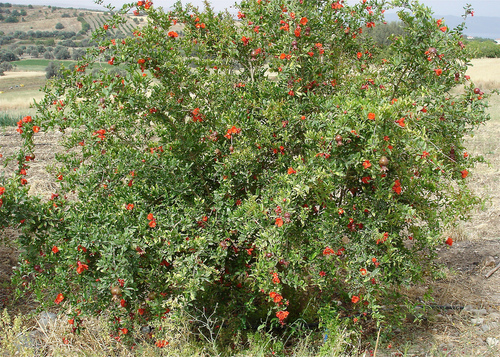
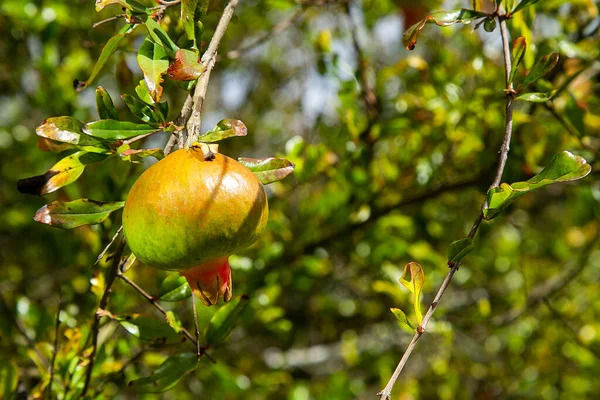
Tell us about your requirement

Price:
Quantity
Select Unit
- 50
- 100
- 200
- 250
- 500
- 1000+
Additional detail
Mobile number
Email
More Products in Nutraceuticals Raw Materials Category
Dong Quai
Price 1000 INR / Kilograms
Minimum Order Quantity : 1 Kilograms
Variety : Other Herbal Extract
Form : Powder
Extract Type : Solvent Extraction
Purity(%) : 99%
Colchicine USP
Price 200 INR / Kilograms
Minimum Order Quantity : 1 Kilograms
Variety : Other Herbal Extract
Form : Powder
Extract Type : Solvent Extraction
Purity(%) : 99%
Salacia Reticulata Root Extract
Price 1200 INR / Kilograms
Minimum Order Quantity : 1 Kilograms
Variety : Other Herbal Extract
Form : Powder
Extract Type : Solvent Extraction
Purity(%) : 100
Cissus Quadrangularis
Price 500 INR / Kilograms
Minimum Order Quantity : 1 Kilograms
Variety : Other Herbal Extract
Form : Powder
Extract Type : Solvent Extraction
Purity(%) : 98


 Send Inquiry
Send Inquiry
